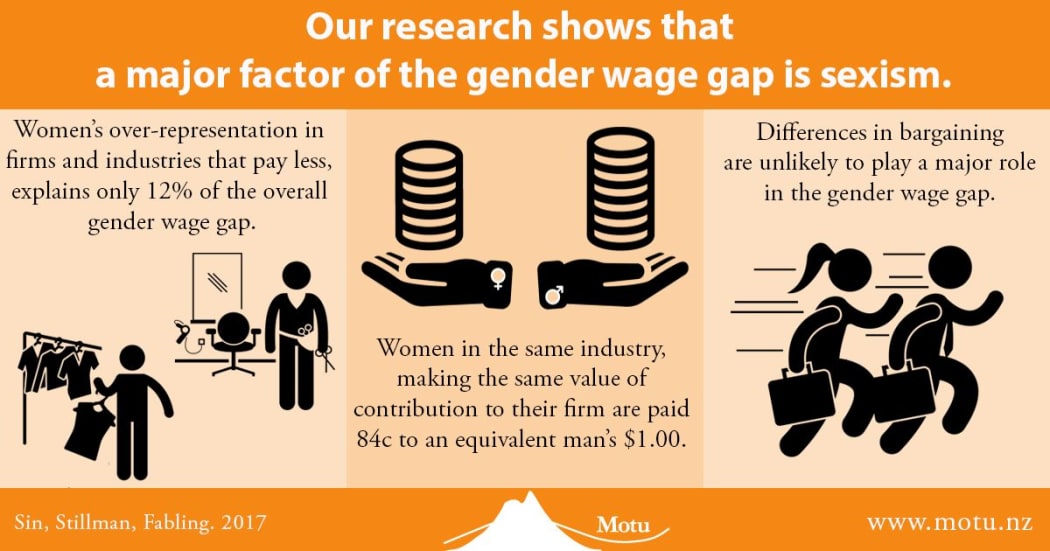Sexism is the main reason for women being paid less than men, according to new research.

Women are paid 84 cents for every $1 paid to men in the same job. Photo: 123rf
Gender pay gaps have often been blamed on women's over representation in low wage sectors of the economy such as food and beverage.
Another popular explanation is that women take time out of the workforce to have babies.
The argument goes that they forget their skills or do not train while away from work, and they also miss out on promotional opportunities.
But research by Motu has found these are minor contributors to the problem.
Researcher Isabelle Sin told Nine to Noon even where men and women were statistically indistinguishable in the value they added to their firms, the average woman was paid only 84 cents for every $1 paid to the average man.
This discrepancy was at its clearest when the value of women's and men's contributions to a profit-oriented employer was identical.
Even then, women got paid less.
Dr Sin said the biggest cause was sexism.
And far from getting better, the problem got worse the longer a woman stayed in a job.
"We didn't find any evidence that young women are paid less than young men for work of the same value.
"But there was a 16 percent pay gap for women aged 25-39, a 21 percent gap for those aged 40-54, and a 49 percent gap for older women."
The gap in wages for the same productivity was also higher for employees who have worked at the same firm for longer and was particularly marked in a few industries.
"The gap was over 40 percent in finance and insurance, telecommunications, transport equipment manufacturing, water and air transport, and electricity, gas and water, and rail," said Dr Sin.
"It's worth noting that these are all sectors that have the potential for monopoly-created profits and have low competition.
"To put it simply, our research suggests sexism is likely to be a major driver of the gender wage gap."

Motu says sexism drives the pay gap. Photo: Motu Economic and Public Policy Research
Council of Trade Unions' president Richard Wagstaff said the research was timely.
"We have just had the care and support settlement, we have got a real crisis in mental health [services] partly because of an imbalance in pay rates and we have legislation which we think will take us backwards not forwards," Mr Wagstaff said.
Business New Zealand has questioned some of the findings of the report, saying years of research showed 12 percent is a better figure for the pay gap than the 16 percent quoted by the Motu study.
But the organisation said unfair pay was quite unacceptable, and many large firms had stringent measures in place to prevent this.
"Only 2000 businesses in New Zealand have more than 100 employees and there are 500,000 smaller businesses in New Zealand," Business New Zealand chief executive Kirk Hope said.
"There can be a whole range of reasons why there can be differential pay - some of them might be because of the reasons outlined in the study and that would be unacceptable to anyone.
"We would like to see the gap closed for obvious reasons - it is unacceptable for people to be paid different wages for the same job."

